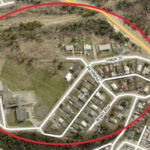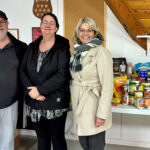Home »

Poverty reduction grants available for local governments
Local governments have an opportunity to apply for the third round of the Province’s Poverty Reduction Planning and Action Program grants to help develop local strategies and solutions to address poverty.
As part of TogetherBC, British Columbia’s Poverty Reduction Strategy, the province provided $5 million to the Union of B.C. Municipalities (UBCM) for the grant program. Since the program began in 2019, 75 local governments have received a total of more than $2 million for 44 poverty reduction plans and projects.
“We are making progress toward our poverty reduction goals, and that’s thanks to our strong partnerships at the local government level,” said Nicholas Simons, Minister of Social Development and Poverty Reduction. “Local governments are best suited to know what their communities need so that together, we can continue to support people who need it most.”
This funding supports local governments to develop poverty reduction plans, including a poverty reduction lens added to existing community plans. Successful projects from previous intakes have included seed money to start a social enterprise, a food redistribution project, a digital literacy program and the development of a post-emergency support services plan.
“Poverty is a continuing reality in too many communities,” said Laurey-Anne Roodenburg, UBCM president and City of Quesnel councillor. “These grants support communities in their efforts to identify the local dynamics of poverty and develop strategies that are appropriate to the needs unique to each place – information that will be critical in guiding further provincial support. I am glad to see this next intake of this well-subscribed program underway.”
Local governments can apply for funding to develop poverty reduction plans or new projects that focus on one or more of TogetherBC’s priority action areas, including:
* housing;
* families, children and youth;
* education and training;
* employment;
* income; and
* social supports.
Projects must involve key community partners, such as community-based poverty reduction organizations, people with lived experience of poverty, businesses, and local First Nations and Indigenous organizations.
Applications will be accepted until midnight (Pacific time), Feb. 11, 2022.
Municipalities and regional districts can partner and apply with other local governments for regional grants.
For regional applications, the funding maximum for both streams is $150,000.
e-KNOW







